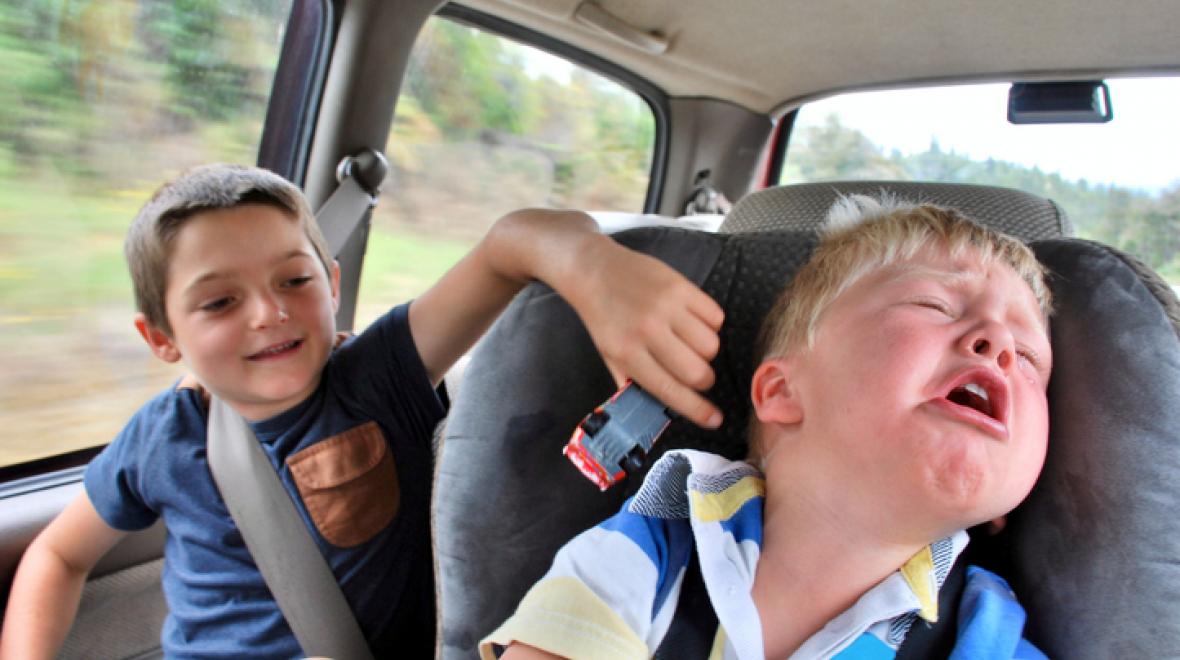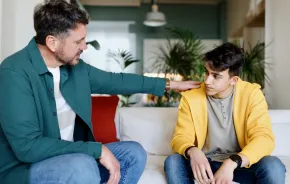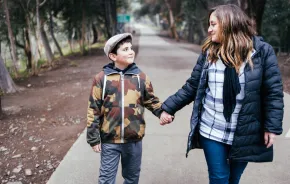
We’re in the middle of a cultural shift, with known abusers being outed on a bigger scale than before. So how do we make sure that we’re raising boys with an informed conception of consent?
To get some guidance, I spoke with Jo Langford, a Seattle therapist, sex educator and dad who frequently coaches parents on having “The Talk”. In the version of his ParentMap-published book “Spare Me the Talk!” geared toward boys, he outlines several ways men can be part of that solution, including: “Support those you know who have been abused, both female and male” and “Do not participate in anyone’s oppression.”
But the conversation can start much earlier than that.
This interview has been edited and condensed for clarity and length.
How do you get started talking to kids about consent?
Using the word “consent” is great. You can sub the word “consent” for anything that uses permissions.
Giving them some agency [is useful]. Explaining to kids, “You don’t have to hug Uncle Paul at Thanksgiving. Uncle Paul can ask you if you want a hug and you can decide if you want to give him consent.” Then you can extrapolate it out into their conversations with other people like: “Did you get consent from your sister before you took the candy bar out of her Halloween stash?”
Have kids be able to count on their hands who can see them with their clothes off … so, if someone’s outside those five people, they have a reason to come forward about stuff. But then you can also flip that as they get a little bit older: “Are you on that person’s list of five?”
How does the conversation differ with boys?
Everything we do with them is targeted toward dominance and power and aggression. ... We have to own that, as parents and as a culture, and do our due diligence of balancing that out with intimacy, consent and emotions.
Once boys start reaching adolescence, how does that conversation evolve?
That summer between elementary and middle school [is often when] they’re going to start spending more and more time with people of the opposite sex. It’s important to have a [serious] conversation: “That [roughhousing] you do with your buddies? You can’t do that with the opposite sex.”
Talk about how they’re using their [tech] devices, as well. Most kids today are going to start crossing the lines [of dating] digitally before they cross them in real life.
Porn has to be part of the conversation because the average age of porn exposure now is about 9 or 10, depending on what study you read. I tell parents, before you think you need to have that conversation, you need to have that conversation.
How do you balance bodily autonomy with “You need a bath right now”?
Any time we can give kids a choice with that is important. Parents can be a little proactive with it: “We have this happening tomorrow. You need to be clean when we go. So, do you want a bath tomorrow morning or do you want to take your bath now?”
How do you check in on the concepts?
Most parents, myself included, often sort of default to “How was your day?” when they see their kid at the end of the day. I really try to come up with more interesting questions to ask; that could be another one: “How did you do with other people’s boundaries today? How did people do with your boundaries today?”
What's one lesson from your work with adults that applies to this topic?
I think that socialization is enormous. There’s a palpable difference between people when they get into their 20s and they’ve been able to create relationships and they’ve screwed up and had to apologize and had some companions to lean on emotionally versus the kids who don’t.
It can be a disservice to kids if we don’t let them do any social media until they’re 17 or 18 years old, because then they’re 17 or 18 and have no idea what they’re doing. We don’t want [to wait] until kids are 16 before we take them to their first restaurant because that’s how kids learn to behave in restaurants. We have to do that with their real life and their online life as well.
Editor’s note: This article was originally published in January 2018, and updated in January 2020.











